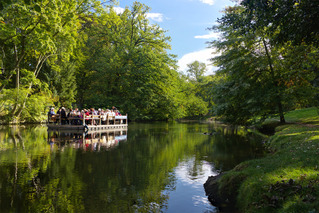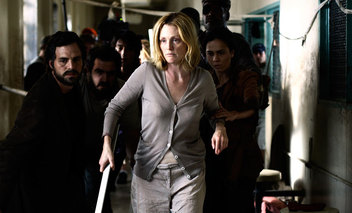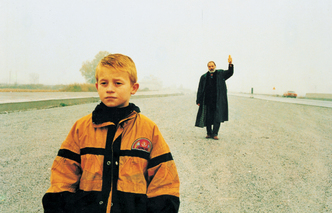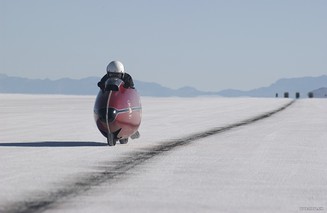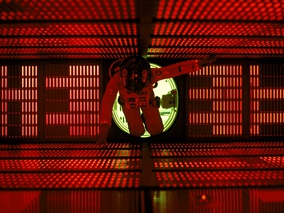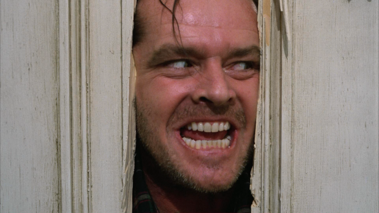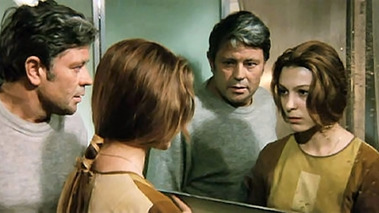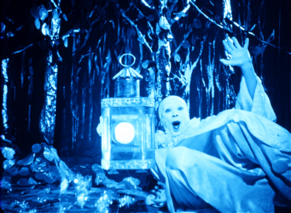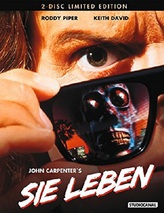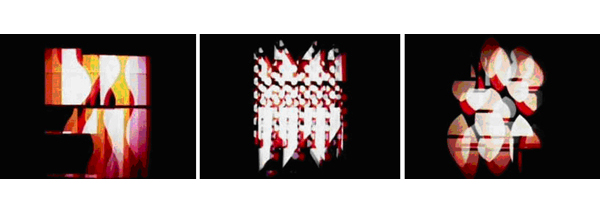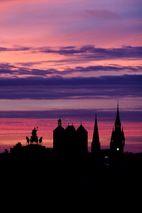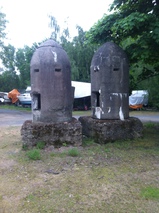- Travel offer - from the Braunschweig City Marketing GmbH
- Contact: Events - of the Technical Universtiy of Braunschweig
- Artist’s Choice - Filmreihe im Roten Saal, Schlossplatz 1
- Childrens program
- SUMMER DREAMS / SOMMERTRAÜME - Concert
- Reading - RAY OF LIGHT
- Lichtparcours Walk - with personalities from the region
- The City-finder - BEI PESS u. PUSE
- Summerfest PLUS / Sommerfest PLUS - of the Municipal School of Music
- Summer Nights - in Braunschweig Cathedral
- Poems for ‘The Portal’ - from Writers Ink
- Artist Talks - in cooperation with HBK Braunschweig
- Lights Off - Finissage
Offers
Travel offer
from the Braunschweig City Marketing GmbH
GUIDED TOURS
As diverse as the artworks of Lichtparcours 2016 are, so are possibilities of discovering them with Braunschweig City Marketing GmbH. Guided tours on the Oker River by boat or raft, or on land by foot, with Segway or bicycle, or in a vehicle for visitors with limited mobility, all offer diverse and exciting perspectives on the light installations. Specially trained tour guides for city culture elucidate all things relevant, interesting and engaging about the exhibit and the Lion City. p>
CONTACT AND BOOKING
All guided tours and trips can be booked for groups. For detailed information visit the tourist information website.
Additional information concerning guided tours and travel packages for Lichtparcours 2016 is also available at the tourist
information center - Kleine Burg 14.
Contact: Events
of the Technical Universtiy of Braunschweig
The architectural work Satellites / Satelliten, developed by Tomás Saraceno, Bernd Schulz and students of the Technical Universtiy of Braunschweig / TU Braunschweig, provides a platform for regular screenings, exhibitions, concerts, and readings.
Thurs. June 16, 8:00 pm., Technical University Campus / TU Campus
Alexander Dorenberg plays rock music of the 70s and 80s.
Thurs. July 14, 8:00 pm., Technical University Campus / TU Campus
Marcel Pollex, founder of the reading stage "Kopf und Kragen,” reads from his recent publications. After the events, we'll put on the music at Torhaus Nord / Tor House North.
Artist’s Choice
Filmreihe im Roten Saal, Schlossplatz 1
From June through August, Lichtparcours Braunschweig 2016 will be offering the accompanying film series "Artist's
Choice," presenting the favorite films of the participating artists in the Roten Saal at the
Castle.
Organizer: City of Braunschweig, Department of Culture and Science, Cultural Institute /
Stadt Braunschweig, Dezernat für Kultur und Wissenschaft, Kulturinstitut
Admission: 5.00 € / 4.00 €
(reduced)
Tel. Ticket reservation:. 0531 470-4848
THE CITY OF THE BLIND // Thilo Frank
Wed., 22. June 2016, 7:30 pm., Roter Saal, Schlossplatz 1
CDN/BR/J 2008, Director: Fernando Meirelles, 116 Min.,
Rated 12
Zu Gast: Thilo Frank
To kick off the film series Thilo Frank will talk about his installation "You and I, wandering on a snake's tail," and introduce us to his favorite movie..
ETERNITY AND A DAY // Alfredo Jaar
Wed., 29. June 2016, 6:30 pm., Roter Saal, Schlossplatz 1
I/GR/F 1998, Director: Theodoros Angelopoulos, 130
Min., Rated 12
WITH HEART AND HAND // Andreas Fischer
Wed., 29. June 2016, 9:15 pm., Roter Saal, Schlossplatz 1 Braunschweig
NZ/USA 2005, Director:
Roger Donaldson, 128 Min., Rated 0
2001: A Space Odyssey // Danica Dakić
Wed., 6. July 2016, 6:30 pm., Roter Saal, Schlossplatz 1
GB, USA, 1968, Direcotr: Stanley Kubrick, 143 Min.,
Rated 12
The shining // Tobias Rehberger
Wed., 6. July 2016, 9:15 pm., Roter Saal, Schlossplatz 1 Braunschweig
GB, USA 1980, Director:
Stanley Kubrick, 119 Min., Rated 16
SOLARIS // Björn Dahlem
Wed., 20. July 2016, 7:30 pm., Roter Saal, Schlossplatz 1
UdSSR 1972, Director: Andrei Tarkowski, 167 Min.,
Rated 12
RABBIT'S MOON + EAUX D'ARTIFICE // Kai Schiemenz
Wed., 20. July 2016, 10:20 pm. (free admission), Roter Saal, Schlossplatz 1
USA 1950, Director: Kenneth Anger, 7
Min. + USA 1953, Director: Kenneth Anger, 12 Min.
APOCALYPSE NOW // Michael Sailstorfer
Wed., 10. August 2016, 6:30 pm., Roter Saal, Schlossplatz 1 Braunschweig
USA 1979, Director:
Francis Ford Coppola, 153 Min., Rated 12
THEY LIVE // Kevin Schmidt
Wed., 10. August 2016, 9:15 pm., Roter Saal, Schlossplatz 1
USA 1988, Regie John Carpenter, 90
Min., FSK 18
Reflective color-light show // Elín Hansdóttir
Wed., 17. August 2016, 7:30 pm., Roter Saal, Schlossplatz 1 Braunschweig
DE 1922-68, Kurt
Schwerdtfeger (Bauhaus Weimar), 18 Min., Experimentalfilm; Reflective color-light show , 5 Min.; Talking Backgrounds, 50
Min.
Childrens program
CITY LIGHTS
Tue. July 19, 2:00 pm.
Grandchildren and Grandparents Workshop, for children, age 6 - 12,
Kunstverein Braunschweig, Lessingplatz 12
From crates and boxes, we'll build the Braunschweig Palace, the White House, and self-designed pieces architecture, assemble them into a city and make it shine with a string of lights!
Material costs: 2,00 €
Organizer: Department of Culture and Science in cooperation with the Art Association Braunschweig / Dezernat für Kultur und Wissenschaft in Kooperation mit dem Kunstverein Braunschweig
Registration by email or telephone:
Tel .: 0531 470-4861
Email: lichtparcours@braunschweig.de
KIDS ART TOUR
Thursday: June 23, June 30, July 7, July 14, July 21, July 28 and more dates for groups on request (min. 10 participants) all dates at 8.00 pm., for children, age 6 - 13, with accompaniment
Meetingpoint: Steintorbrücke, Nordseite
At dusk, we'll be taking a look at the installations of Lichtparcours from a new side, and during a treasure hunt, enthusiastic riddle-solvers will learn the exciting stories of these fascinating artworks.
Admission: € 8.50 per child and adult escort
Organizer: Department of Culture and Science in cooperation with the Braunschweig City Marketing GmbH / Dezernat
für Kultur und Wissenschaft in Kooperation mit der Braunschweig Stadtmarketing GmbH
Registration by email or phone: Tourist Info Braunschweig / Touristinfo
Braunschweig
Tel .: 0531 470-2040
Email: touristinfo@braunschweig.de
LIGHT WORKSHOP
Tue. July 5, 11:00 am., Sat. August 20, 2:00 pm., child-parent workshop for children, age 4 - 10, Kunstverein Braunschweig, Lessingplatz 12
Whether street lighting, living room lamps or sunlight - without light, the world would be a darker place. Workshop participants will explore questions dealing with the subject of light before making an individual candle or tealight.
Material costs: 2,00 €
Organizer: Department of Culture and Science in cooperation with the Art Association Braunschweig / Dezernat
für Kultur und Wissenschaft in Kooperation mit dem Kunstverein Braunschweig
Registration by email or telephone:
Tel .: 0531 470-4861
Email: lichtparcours@braunschweig.de
LIGHT RESEARCHERS
Tue. July 5, 11:00 am., Sat. August 20, 2:00 pm., child-parent workshop for children, age 4 - 10, Meetingpoint: Bürgerpark, Drachenbrücke
What
is light and how does the human eye see it? Using Danica Dakić's installation as an example, we will investigate light in
detail and break it down into its components. With this newly acquired knowledge, participants will create their own
light-world in a plastic
bottle.
Material costs: 2,00 €
Organizer: Department of Culture and Science in cooperation with the Kunstverein Braunschweig / Dezernat
für Kultur und Wissenschaft in Kooperation mit dem Kunstverein Braunschweig
Registration by email or telephone:
Tel .: 0531 470-4861
Email: lichtparcours@braunschweig.de
SHADOW THEATRE
Tue July 12, 11:00 am., for children, age 8 - 14, Kunstverein Braunschweig, Lessingplatz 12
"Where there's light, there's shadow." Using the various artworks of Lichtparcours 2016, we will create large, small or even colorful shadows and silhouettes and think out short stories and scenes to go along with them.
Material costs: 2,00 €
Organizer: Department of Culture and Science in cooperation with the Art Association Braunschweig /Dezernat
für Kultur und Wissenschaft in Kooperation mit dem Kunstverein Braunschweig
Registration by email or telephone:
Tel .: 0531 470-4861
Email: lichtparcours@braunschweig.de
SUMMER DREAMS / SOMMERTRAÜME
Concert
Fri. August 5, 8:00 pm., Gartenhaus Haeckel / Garden House Haeckel, Theaterwall 19
Works by JS Bach, Mendelssohn, and Spohr. Set against the backdrop of Kevin Schmidt's installation, sounds and lights synthesize into an audio-visual experience. Vlady Bystrov, composer, and saxophonist will coordinate music and drama and present one of his works.
Admission is free.
Reading
RAY OF LIGHT
Sat. Aug. 6, 9:00 pm., On the hill of the former Ulrich-Bulwark, Museum Park / Anhöhe ehem. Ulrich- Bollwerk, Museumpark
Light as a topos in the history of literature: The Raabe-Haus / Raven House: Literature Center, embarks on a treasure hunt and arranges quotes from world literature into a text-collage. Kai Schiemenz' sculpture Bastion Beauté is the scene of the reading with contributions from Dorothee Bärmann, Jürgen Beck-Rebholz, Kathrin Reinhardt and Ronald Schober.
Admission is free.
Lichtparcours Walk
with personalities from the region
Braunschweig citizens and their Lichtparcours - walks to selected installations
Fri. June 24, 2016, 9:00 pm
Tobias Henkel, Director of the Braunschweig Cultural Heritage Foundation / Direktor der Stiftung Braunschweigischer Kulturbesitz
KAI SCHIEMENZ: BASTION BEAUTÉ
Meeting place: Haus der Braunschweigischen Stiftungen / Löwenwall 16
Fri. July 1, 2016, 9:00 pm.
Anke Kaphammel, chairperson of the Committee on Culture and Science / Vorsitzende des Ausschusses für Kultur und Wissenschaft
ALFREDO
JAAR: CULTURE = CAPITAL
Meeting place: Burgplatz / Braunschweiger Löwe / Braunschweig Lion
Thurs. July 28, 2016, 9:00 pm.
Dr. Gabriele Heinen-Kljajic, Lower Saxony Minister for Science and Culture / Niedersächsische Ministerin für Wissenschaft und Kultur
KEVIN SCHMIDT: ... BUT NO ONE'S HOME
Meeting place: Schlossplatz / Entrance to Castle Museum
Fri. August 12, 2016, 9:00 pm.
Gerhard Glogowski, Minister President of Lower Saxony (retired). and honorary citizen, CEO of the Braunschweig Foundation / Ministerpräsident des Landes Niedersachsen a. D. und Ehrenbürger, Vorstandsvorsitzender der Braunschweigischen Stiftung
DANICA DAKIC: FLASHBACK
Meeting place: Bürgerpark / Steigenberger Parkhotel
Fri. 19 August 2016, 9:00 pm.
Ulrich Markurth, The Lord Mayor of Braunschweig / Oberbürgermeister der Stadt Braunschweig
BJÖRN DAHLEM: M-SPHERES / SEYFERT 2
Meeting place: Bürgerpark / Steigenberger Parkhotel
Fri. 26 August 2016, 9:00 pm.
Prof. Dr. Susanne Robra-Bissantz, Vice President of the Technical University of Braunschweig / Vizepräsidentin der Technischen Universität Braunschweig
STUDENTS OF TU BRAUNSCHWEIG / IAC led by BERND SCHULZ and TOMÁS SARACENO: SATELLITE
Meeting place: Haus der Wissenschaft/ House of Science / Pockelsstraße 11
Fri. September 2, 2016, 9:00 pm.
Joachim Klement, General Director of the State Theater Braunschweig / Generalintendant des Staatstheaters Braunschweig
MICHAEL
SAILSTORFER: SOLAR CAT
Meeting place: John-F.-Kennedy-Platz / John F. Kennedy Square / Augusttorbrücke /
Augusttor-Bridge
Thurs. September 8, 2016, 9:00 pm.
Cornelia Götz, Dome Minister of the Braunschweig Cathedral / Dompredigerin Braunschweiger Dom
THILO
FRANK: YOU AND I, WANDERING ON THE SNAKE'S TAIL
Meeting place: corner of Petritorwall / Am Neuen
Petritore
Organizer: City of Braunschweig, Department of Culture and Science, Cultural Institute Stadt Braunschweig / Dezernat für Kultur und Wissenschaft, Kulturinstitut
Participation: free
Registration required: Tel.: 0531 470-4844 or by Email: lichtparcours@braunschweig.de
The City-finder
BEI PESS u. PUSE
Consistently during the complete run of Lichtparcours 2016, Tobias Rehberger's Art Takeout / Kunstimbiss, BEI PESS u. Puse will be culinarily and culturally recorded.
25. Juni
9. Juli
23. Juli
6. August
20. August
3. September
17. September
Summerfest PLUS / Sommerfest PLUS
of the Municipal School of Music
Sat August 20, 4:00 pm., Augusttorwall 5
A "children's music-playing parcourse," and a varied musical program of the Municipal School of Music / Städischen Musikschule will kick-off the evenings of the Summerfest. Performances by the Youth Symphony Orchestra / Jugend-Sinfonie-Orchestra, the Bigband and other well-known regional ensembles from the Music School provide a rich musical parallel to the Lichtparcours. Culinary delights will be provided.
Admission is free.
More informations: http://www.musikschule.braunschweig.de/
Summer Nights
in Braunschweig Cathedral
Sommernächte im Braunschweiger Dom
Sat. July 16, Fri. July 29, Fri. Aug. 5, respectively at 10:00 pm.
During Lichtparcours, Braunschweig Cathedral will also present itself in another light and immerse itself in color. The Cathedral also warmly welcomes visitors on three evenings, before or after the "Illuminated Walk through Braunschweig".
Admission is free.
Poems for ‘The Portal’
from Writers Ink
The inspiration for these poems was a visit to see the Lichtparcours Installation ‘The Portal’ at Braunschweig Harbour.
Like the artists who created the installation, the poets were intrigued and inspired by the harbour itself. It was like the discovery of a treasure-trove of history, travel and romance right at the edge of the city.
The poets belong to Writers Ink, and most write in English as a second language.
If you’d like more information about Writers Ink please contact rebecca.bilkau@icloud.com
Below are four Poems: The Granary by Angie Slotta, Brunswick Harbour by Ottmar Bauer, The Granary’s Voice by Stepahnie Lammers and Water’s City by Rebecca Bilkau.
The Granary
From a gritty patch of salty-sweet sand a galaxy of granulated stones is seen:
stretching
out to left, and right, and up, up, up;
one grain on top of another, densely
packed together - millions of concrete crystals:
structure walls, rooms, stores, until all of
it defines
the granary.
With a pulse in a rush: open the floodgates to the
arteries, send a tidal wave through its gut,
carry me on a sea of seeds: gravity pumps
nurturing nutrients
through the chambers of that big heart of cities: the supplier, the
origin
of industry is
the granary.
Unveiled by light: a changeling, a swarm of fireflies, a reflection of the stirring life inside;
outside on the crumbling building’s flank - board a barge tonight,
cut through the starry
waters on this journey through the past, echoing through the
night, illuminated before your
eyes, visible from a gritty patch of
salty-sweet sand next to
the granary.
Angie Slotta.
Brunswick Harbour (2016)
Future-eating one-man bunkers.
Yes, the two of you, standing there, unsmiling,
At the bottom end of the old
Brunswick dock,
Twinning for eternity. Round and streamlined
Like bombs dropped out of Hell, but
Square
eyed, square mouthed,
Ridiculously hooded and altogether dead,
Dead except for your insatiability.
How
do you do it, with jaws and maws
Cast in concrete, devour, chew, digest
All that moves forward, ships, dockers,
forklifts,
And, for starters, those innocent rabbits
That hop and mate and nibble
Across the weeded ramps
and lanes. Where
Are the hands, that more than patent metaphor,
Of what was once the harbour clock?
Gone
down your ghastly throats, annihilated.
Clever, clever, and in your limited perception,
Un-eared, dead-eyed, as
you are, not inefficient, either.
But there is a harbour outside – or so I hope –
Your range of greed,
ringing with the thuds
Of world-travelling containers lifted onto trains,
A harbour bustling with commerce and
internationality,
With barges, barely inches above the waterline,
That love to shove up mile-long billows
Along
the Mittelland canal, before they rest the night,
But never turn to set these rusty cranes to work.
The scrap
heaps, yes, I’ve seen them
And do not hesitate to call them goods;
They’ve taken root along the quay, and having
long
Befriended you, our pair of one-man bunkers,
Feel safe, like funny installations at museums.
Speaking
of which, there is a band of artists coming,
Who know that the more run-down a place,
The better the
inspiration, curious people.
I tell you, when they see you – yes, you,
The bunkers, and I’m still talking to you
–
For the moment they’ll forget about that white façade
Of more or less the harbour’s only storehouse,
Containing,
I am sure, floors and floors of obsoleteness.
That wall, so proud from all the grey,
Is meant to serve as
screen
For some as yet unknown, elaborate light show.
(Because, artists these days cannot be bothered
With
stark blonde nudes in oil, or sculpturing
From granite heroic guys, wielding spade or assault rifle.)
So, as I
said, seeing you, the kids will stand there
Wondering, and before long they’ll peep and
Poke into your bellies,
and like good artists
Penetrate the rubble with their minds.
I hope they’ll find the entrance down,
Down
to the horrid intestines of history.
And, hopefully before you act,
They’ll race back to their van and get out
Armfuls of equipment: projectors,
Cable drums, computers, parabolic mirrors.
And before nightfall there’ll
be: the slide.
Which inserted, will, my dears, my
Future-eating one-man bunkers,
Disappear you, will
disappear you altogether
Beneath a field of roses.
And I will stand
And watch and see what happens.
Ottmar Bauer
Einmannbunker am Hafen:
The Granary's Voice
With nightfall comes reflection.
Once the builders, traders, lever-pushers are gone
and have taken their noises
with them,
we regain our voices:
The canal laps up whatever stars, leaves or raindrops he
can catch, then talks about becoming a river,
about
hopping out of bed, one day;
of boldly flowing, where no bulldozer has gone before.
Their shift done, the young gantry cranes flex their sinews
and I listen politely, as they whinge and creak,
but
during the day they shuffled and stacked
containers from Hong Kong like Mahjong pieces.
Redundant as I am, I no longer have cargo for the barges,
but they share their voices, anyway. Same old, same
old,
they gargle, diesel-drunk, and how they’d like to laze in the swell,
instead of hauling ore, scrap metal or
gravel.
But then they murmur of landscapes and locks,
of destinations and docks, and of kissing quays in distant waters.
And
I, earthbound, obsolete, no longer a feeder of cattle or people,
I fall silent.
I have no regrets. I could have been built a munitions factory, or worse,
could have burned in storms of fire. Built
in ’33, need I say more?
Even though I am empty now, hollow, forever hungry,
without purpose or hope, I shall not
complain, but
I’ll gladly tell you about the golden nuggets of wheat and barley
cascading from floor to floor, as though to measure
time,
and about the dry whisper of black rapeseed and grey rye in my care,
and my endeavours to keep insects, mice
and pigeons out.
I’ll tell you about the tickle of the men, how they milled around
to keep the bread-in-waiting cool and dry,
how
they filled it into sacks, always busy, part of the great flow.
Until the men left for metal silos. Until the pigeons
came.
And I, with too much emptiness inside, turned myself into shelter.
I used to think of them as enemies, as rapacious
gluttons,
but now their cooing keeps me company;
voices in their own right.
Stepahnie Lammers
Water's City
for Braunschweig Harbour
We dream in opposites. They inform us.
We, in the
flatlands, where the sea
is mainly a rumour, we have sails
flapping through
our yards;
in the fathomless centre of night
they are the white shadows frightened Lovers
mistake for ghosts, who canny matriarchs
touch, finger to canvas air, and shudder.
What
mother does not fear the lure of water?
Transgressive,
shapeless, it is the ninety percent
of every child that eddies to freedom. That is,
disobedience.
Risk. The unfixable. The unbidden
inheritance
prayer can't erase. Water. It sloshes
through
sons, daughters, rendering them unreliable,
dilute,
strange. Strains the banks of family.
Opposites. Opposites. Water for heathland.
Poverty
for wealth. We, Braunschweigers,
gentle, observant, earnest, land at every edge
of
our existence, we dream we also dwell
on the Baltic, in league with its league.
Landlocked Hansa. Yes. We stretch past
local streams and trade talk with the sea
we believe might be, sleep easy, lush with wealth.
The
parent, the priest, we bring water
into
the fold; tame it. Name it our own.
Save
our young by dunking them in it.
Sprinkle
them on feast days, like it or not.
Scrub
them in it for punishment, pleasure
and routine. We hear we aren't unique:
Oker,
Volga. Same. Same.
Lush. The river is bounty. Rushes to be cut, dried
woven into the thrones we stow in our guild houses,
our workplaces, at the head of our tables, the thatch
that crowns our homes. There are fish too, caught
by us at the market. Wherever there is Need
there is an exchange. Money for life.
Life for money. We traders supply the need
we didn't create. And we are the heart of town.
The
standers-back, the teachers, the philosophers,
bless
us, we listen to the cheap
speak of the river; we have learned its letters;
we
know it is getting wily. Up to new tricks.
How to hide even when the sun pays
court
to the merchants. How
to
catch fish. The river is silting up.
And with a heart and a half, we look the other way.
Blank the kid pinching the plum, the doomsters
who say the river's running out –
show ourselves
wise. Pay no heed to pepper,
nutmeg, the burble of spice that hot tongued tinkers
peddle to fickle bellies. Cut our losses.
Say the Hansa trade is solid as rocks,
while we pull our boats from the encroaching ooze.
The talk of the river was the talk of the town.
It was the tittle-tattle of rittle-rattle pebbles,
shallow
tales. It kept gossip afloat. When it foundered
there
was a mud of silence, which some
mistook
for obsequy. No one but the water Readers
saw
the end of freedom rippling in. But. Blame no-one.
Even
shallow waters cut up choppy.
It was the encroaching dullness, caught our attention.
What wasn't dimmer was distorted. Our wives
told us they had told us we were captives in halls
of mirrors, river in sky, sky in river, and every harvest
between them brighter in the reflections. The Hansa
sank
and half our autonomy was on their deck. Half
our pride.
Our buoyancy gone, our gates flew open.
The Dukes surged in. Banned shanties.
Everything
seeps, fills. A storm in the Harz
raises the Oker, and the traders' hopes bob. Sun,
dries,
sinks, and they fall low. But in the pale
night,
another tide rises. We, the philosophers
and
teachers, we the mathematicians and poets,
bless
us, we engage ourselves with small sluices,
the
channels of thought we did not know we could think.
Our buoyancy surged from us, but not our will to float.
Every silk we traded, every bolt of calico
could, without a ripple of permission, turn
sail in
our hands. The millers' grain cascaded
through their stones. Horses' breath became mist
on the water meadows. When the brooks flooded
we nodded to ourselves, generation after dry
generation. Kept swimming.
We have found analogies for our calling
and
the buildings built for it. A college,
we
may say, becomes a scholarly confluence,
or
the estuary where salt and sweet theories
meet and become inseparable. Before they diverge.
No.
We may say, in our certain uncertainties
a
college is not a culvert, my learned friends, but a canal.
Keep these streams: Wabe, Schunter, Time.
Imagine
the swirl of a thousand thousand
unsung contracts, mergers, the sump of grief
at the
recurrent shock of death; and between
the bubbles of trade left to us, the rise,
rise, rise of our extemporisation. Wars? Come
and go. Napoleon had no eye for business.
The Kaiser, neither. We watered the earth.
Water, formed, governed. Calculated.
If
twenty men take two minutes to drink
a
pipe of ale, you sir, at the back, how many
mud
pies can you make from a ditch as Long
as a theoretician’s list of options, and if the answer
is
more than seven slag heaps how many backs
will
buckle, how many break, before the canal fills?
And. Earth moved, we heard. Collected in pyramids
on the road north. Bedrock, top soil, what
isn't fluid? A ditch to fill with cargo,
on
vessels on a man made flow. At beer we were gods
or engineers, inventing springs, sources, channelling
the Hansa. Time was a sail braced, swinging forward,
back, the clean clack of calico the tock and tick.
We saw barge ropes in our sinews. Prepared to dock.
Here
are the beautiful things: the Tools
our
need to calculate created. The curve
of
the compass, the elegance of the ruler,
all
their variations. The laws of average
by
which a town expands to its new harbour,
given
the chance. Given the lack
of
the incalculable glamour of war.
Halved whales, those barges, when they came. High sea beasts
ripping the canal's silk surface with awful calm;
and the steel in their bellies, the new grain. We gulped it back
with a dash of propaganda. Told ourselves we walked
on water, in the right uniform. Believed the opposite
of what we thought. Till the city drowned in fire,
the sky spat sparks, boiling all reflections; and we
suspecting we'd earned this, learned to fear thirst.
Hunger
eats the guts of deduction. We, the historians,
the
mediators of time, we had soot in our eyes at dawn,
as
if we'd painted caves with the hunters all night.
As
if the firestorm itself was a hypothesis
we
could reason away. First light, we stole to the towpath
to
measure the bluing of brown water. It was banked
by
cardboard khaki, Marshall planned. Food. Food. Food.
Opposites, opposites, rabble and silence,
rubble
and concrete, rivers and canals.
We took to building in our sleep,
constructing new
visions, brick by white slab.
Water, wherever it ran, was a private pleasure,
a genetic tick, twitching the blood. The canal
silent, still, threading through bright as grain,
light as winter. Mistaken for mundane.
There is much to be said for seeing a dream,
though
we, the planners and navigators,
we,
the dredger drivers, and pilots of barges, prefer
the
jargon of projects, maintenance, itineraries.
Do
not believe that is our only dialect. This wide, grey, green tide-free
organised
water, is our calling, our habitat.
We
sing its plainchant.
Hush. The stevedores have gone home; the great
containers shift in the earth's turn, China
setting into Holland. Metal waste
percusses
for the swaying frogs.
The harbour is dark, that is lit by two moons, and two stars
and we would not say which reflects which.
Sniff. Our town in this air. The scent of new coal,
fresh flour. In the granary, something germinates.
Rebecca Bilkau 2016
Artist Talks
in cooperation with HBK Braunschweig
LECTURE ALFREDO JAAR
Fri. June 10, 5:00 pm., Aula HBK Braunschweig
Faithful to the creed "99% thought and 1% action," Alfredo Jaar, in his conceptual works, deals with politically reprehensible practices and hidden power structures. Based on his work Culture = Capital / Kultur = Kapital (2016), realized in Braunschweig, the two-time documenta participant will present excerpts from his current artistic practice.
Moderator: Prof. Dr. Thomas Becker.
Admission is free.
ROUND TABLE: LEGIBLE LIGHT CITY
Mon. June 13, 4:00 pm., Aula Braunschweig
Four male and female artists of Lichtparcours 2016 approach the question of space and perception from different perspectives. The topic of the panel is the readability / non-readability of space, its markers and the space-time interconnection of perception.
Head of the panel: Prof. Dr. Thomas Becker.
Admission is free.
Lights Off
Finissage
Thurs. September 22, 5:00 pm.
Join us in celebrating the conclusion of Lichtparcours 2016 with an evening of music. Enjoy the program at different sites along the shore of the Oker river / Okerufer. At the end of the night, the lights of the artworks will be extinguished.
